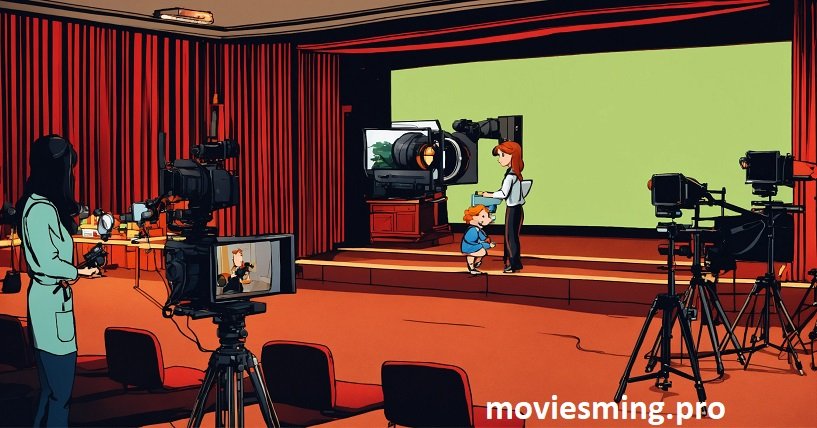Introduction
Some horror movies go beyond just frightening the audience; they explore the minds of the characters as well as the viewers. One such movie is “Audition,” audition movie review a masterwork of Japanese psychological horror directed by Takashi Miike that never fails to spark controversy and thought among audiences. “Audition” (オーディション, Ōdishon), which debuted in 1999, blends horror, suspense, and romance themes to produce a disconcerting story that stays with you long after the credits have rolled.
The Director and His Vision
In Japanese film, Takashi Miike is considered a pioneer, especially in the genres of psychological thrillers and horror. His style of filmmaking frequently questions established conventions and delves into the most sinister facets of human nature. In “Audition,” Miike exhibits his skill at establishing tension and a tense mood that grows stronger as the movie goes on.
Unveiling the Story
The first scene of “Audition” introduces us to Shigeharu Aoyama, a widower who chooses to get married again. Encouraged by his acquaintance, Aoyama stages a fictitious casting call in order to find a compatible companion. He is enthralled with Asami Yamazaki, a mysterious and modest-looking young woman, during this process. But as their friendship grows, Aoyama learns disturbing details about Asami’s past, setting off a chain of horrific revelations that culminate in a terrifying conclusion.
Protagonists and Antagonists
In “Audition,” Asami Yamazaki shows herself to be a nuanced and mysterious character. Asami is initially shown as modest and obedient, but as the narrative progresses, her actual personality becomes more and more apparent. Her deep-seated psychological scars and prior traumas appear in unsettling ways that defy stereotypes of victimization and villainy. Shigeharu Aoyama, on the other hand, is portrayed as a likeable lead character motivated by loneliness and a need for company.
Love, Loneliness, and Obsession
“Audition” explores the intricacies of love and loneliness at its core. After his wife passed away, Aoyama’s search for love is a reflection of his need for emotional connection, which finally pushes him into a risky relationship with Asami. The movie looks at how loneliness may skew views and push people to extreme lengths to find someone to spend time with. In addition,
Visuals and Sound
In order to evoke a sense of suspense and terror, Takashi Miike uses a range of cinematic devices in “Audition.” Visually, the movie masterfully confuses and unnerves the audience by contrasting calm, seemingly ordinary scenes with moments of intense horror. Deeper themes and human motivations are communicated mostly through symbolism and imagery, with reoccurring motifs like the sack and the piano wire bearing a great deal of narrative weight.
Controversy and Acclaim
When “Audition” was first released, it caused a lot of controversy and polarized views among both audiences and critics. Strong opinions were sparked by the film’s violent violence sequences and unapologetic depiction of psychological anguish. Some people praised Miike’s courage and skill, while others felt that the film overused shock effect. Despite receiving a mixed reception at first, “Audition” has subsequently developed a cult following and won praise for its audacious narrative and profound philosophical exploration, cemented its place as a landmark piece of modern horror filmmaking.
Japanese Horror and Gender Dynamics
“Audition” represents a unique fusion of traditional and modern storytelling methods in the framework of Japanese horror filmmaking. In order to investigate themes of gender, power dynamics, and the residual repercussions of prior trauma, it draws upon cultural fears and societal conventions. In particular, Asami Yamazaki’s character challenges clichéd depictions of women in horror films and subverts standard gender norms, providing a complex analysis of identity and agency in a patriarchal society.
Influence on Horror Genre
In the horror genre, “Audition” has had a significant and long-lasting influence. A new generation of filmmakers has been inspired by Takashi Miike’s innovative storytelling approaches and desire to push limits to explore difficult psychological topics. Subsequent works that explore comparable themes of psychological horror, manipulation, and the fuzziness of victim-antagonist boundaries bear witness to the film’s influence. The popularity of “Audition” among viewers throughout the globe has not diminished, solidifying its place in the annals of modern horror film.
Psychological Impact on Viewers
The film “Audition” has a tremendous psychological influence on viewers, as evidenced by its slow-building tension, surprising turns, and unpleasant visuals. The film’s examination of psychological trauma and emotional manipulation stirs up powerful feelings in viewers and encourages reflection. The movie “Audition” provokes viewers to consider their own views on trust, love, and the darker sides of human nature, leaving many with unforgettable and thought-provoking memories.
Comparisons and Similar Works
“Audition” distinguishes itself from other psychological horror movies with its distinct fusion of horror, suspense, and romance. In contrast to conventional horror stories, which center on paranormal activity or outside threats, “Audition” emphasizes the protagonists’ internal conflict and the fallout from their decisions. Thematically related to “Audition,” films like “Psycho” and “Rosemary’s Baby” examine identity, manipulation, and the frailty of the human psyche.
Conclusion
To sum up, “Audition” continues to be a classic example of psychological horror that defies the rules of the genre. The film is bound to make an impact on viewers because of Takashi Miike’s skillful directing, amazing acting, and eerie story. By delving into the themes of love, loneliness, and addiction, “Audition” forces viewers to face up to harsh realities about human nature and the limits of emotional control. Its influence on horror movies is still felt today, motivating directors and sparking conversations on the complexity of desire, fear, and the need for connection.
FAQ
Is “Audition” based on a true story?
No, the plot of “Audition” is not real. It is an adaptation of the same-titled novel by Ryu Murakami.
Why is “Audition” considered a psychological horror film
“Audition” is categorized as a psychological horror movie since it explores topics like trauma and obsession while concentrating on the inner turmoil of its characters, especially Asami and Aoyama.

